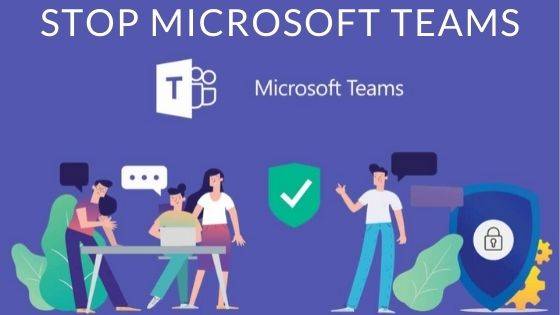Android Vs IOS App Development: Benefits And Challenges
Deprecated: preg_split(): Passing null to parameter #3 ($limit) of type int is deprecated in /home/dailwtkh/public_html/wp-content/themes/jannah/framework/functions/post-functions.php on line 863

Explore the Android vs. iOS app development. Before choosing a platform for your next mobile app project, consider market share, security, development expenses, and more.
Both Android and iOS rank high on the list of developers’ preferred platforms for application development. Why is this happening? Since they both control the largest percentage of the mobile consumer market, there could be a lot of cake to divide up. The main issue for app developers is still deciding whether to focus on Android or iOS app development.
This blog will answer it. Here we will compare and contrast Android and iOS app development, looking at their respective pros and cons. After reading the following article, you should be able to make an informed conclusion.
Challenges of Android App Development
Developing an Android app comes with several challenges.
- Safety issues: Data privacy is an essential feature and critical component of any trustworthy program. There may be occasional security issues with Android due to its open structure. Android’s open structure may cause security vulnerabilities sometimes. This is a major key challenge for Android app development.
- Fragmentation: It is necessary to do more exhaustive testing across a wide range of operating system versions and hardware setups since compatibility issues can develop as a result of the wide variety of Android devices.
- A long time is required for development: To handle a variety of devices and screen sizes, the development process may need to be extended and made more complicated.
Challenges of iOS App Development
- Increasing development costs: There is a possibility for a greater return on investment in developing iOS applications due to the specific hardware and software that is required.
- Lower levels of personalization: When compared to Android, Apple’s ecosystem is more restricted, which limits the customizing choices available.
- Strict guidelines for the app store: Due to the increased demands of Apple’s app review process, both the acceptance and rejection of the app can take longer than expected.
App Development: Android vs. iOS: A Comparison Table |
||
| Android | IOS | Aspect |
| Larger global market share | Smaller but affluent user base | Market Share |
| Open source, highly customizable | Closed ecosystem, limited customization | Ecosystem |
| A wide range of devices | Limited to Apple devices |
Device Diversity |
| Generally lower, but varies | Generally higher | Development Cost |
| Lower average revenue per user | Higher average revenue per user | Revenue Potential |
| Less stringent, faster | Strict, can be time-consuming | App Review Process |
| More vulnerable to malware | Robust security features | Security |
| Varied, depends on region and demographic | Generally higher | User Engagement |
| Android Studio, Kotlin, Java | Xcode, Swift | Development Tools |
| Google Play Store, third-party stores | Apple App Store | App Distribution |
Benefits of Android App Development.
The advantages of developing apps for Android include:
-
- A larger market share (android controls a significant portion of that market).
- Greater customization and flexibility (because the Android operating system is open source).
- A diverse ecosystem (android apps can run on a wide variety of devices, from smartphones to tablets, smart TVs, and wearables).
- A less stringent approval process (Google Play Store) compared to the App Store.
Benefits of iOS App Development
Here we listed the advantages of building an iOS App.
-
- iOS users are often more inclined to pay for applications and in-app purchases, which makes it a lucrative platform for developers.
- Minimal compatibility concerns and more consistent personal experiences are the results of iOS’s operation on an extra-regulated range of devices, which contributes to its unified ecosystem.
- Apple’s closed environment provides robust security features and rigorous guidelines for app vetting.
- Users on iOS often exhibit higher levels of engagement and loyalty.
How Much Does It Cost to Develop an iOS App Versus an Android App?
Now that we’ve broken down how Android and iOS compare across different categories,
we can look at the costs and benefits of mobile app development on each platform.
- Labor Expenses
Dev fees are different throughout the world. Builders get a fair wage in the United States and the United Kingdom. On the other hand, Indian builders are more affordable. Regardless of the developer’s origin, you can expect the same high-quality output.
Java is also the language of choice for Android app developers.
The usual iOS technology stack consists of Swift and Objective-C, however this programming language is even more affordable.
Developing for Android allows you to save 10-15%.
- Time Development
The general public tends to agree that development costs increase as time goes on.
Android is larger because it is based on Java. Conversely, this results in more time available for coding.
The fact that Android is compatible with so many devices also makes fragmentation a problem for developers who want to undertake extensive testing.
On top of that, iOS emulators are far faster than Android ones.
However, you can lessen the impact of this risk by limiting the operating system and device versions that your software is compatible with.
The documentation and community support offered by Java are also invaluable.
Nevertheless, the strict regulations imposed by the Apple App Store provide a significant obstacle for iOS and may sometimes prolong the time-to-market.
The Google Play Store does provide more leeway for software submissions.
Android comes out on top.
Wrap Up:
Consider your target market, budget, and enterprise goals when choosing to develop apps for Android and iOS. While Android’s a larger user base and more customization options, iOS provides a more controlled environment and, likely, more business. Ultimately, many corporations opt for move-platform improvement to leverage the strengths of each platform. To make the right decision on your app development journey, it’s important to understand the benefits and challenges of both Android and iOS applications.






My brother suggested I might like this blog He was totally right This post actually made my day You can not imagine simply how much time I had spent for this info Thanks
Its like you read my mind You appear to know so much about this like you wrote the book in it or something I think that you can do with a few pics to drive the message home a little bit but instead of that this is excellent blog A fantastic read Ill certainly be back